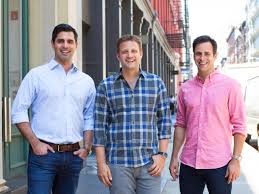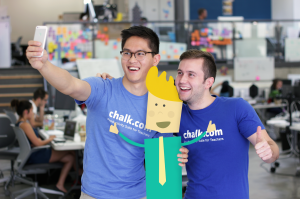
We all know the importance of story, well, Syed has a story worth reading. Everything he needed to develop his entrepreneurial skills simply fell into place. Born in Karachi, Pakistan, Syed started his first business making greeting cards for a Muslim holiday at the age of 7. With the funds coming from his mom, he was able to triple her investment within the first month. Loving this, Syed began selling flags for Pakistan’s Independence Day celebration- also, profitable. However, he was not satisfied with selling just seasonal products. At the age of 9 he opens his own snack shop with his neighbor gaining extremely high profits. When he turns 12, his life is flipped upside down- his family immigrates to the United States.
With a whole new culture, language, and home, Syed found it extremely difficult making friends. In his spare time, he began gaming. During lunch when all the other kids were socializing, Syed would sit in the library playing games. But, because school is prison, the firewalls blocked majority of his favorite websites. He began toying around with codes and sketchy back doors to avoid the security walls. The other kids started to notice Syed playing all the popularly blocked games and he saw the opportunity. His web directories spread like wildfire as he began to develop his own web development business.
Skip a few awkward years, Syed attends the University of Florida. During his 4 years there he realizes he could not keep up with the demands of his online business. So, he migrates all his clients to WordPress sites. Next thing he knows, people are asking him about how to maneuver WordPress. To answer all the questions, he creates WPBeginner- the largest free WP resource site.
After college he continues innovating in the online world. List25, OptinMonster, Themelab, and Envira Gallery- to name a few. Looking at the big picture, if Syed had not moved to the states he would have never had issues with making friends, he would have never sat in the library during lunch, and he would have never become the web developer he is today. The story itself is inspiring, but the components of the story are what make Syed’s life special. We may not all be born entrepreneurs, but we
can remember that for every challenge we face, there is always an opportunity.
To hear his web wisdom:









